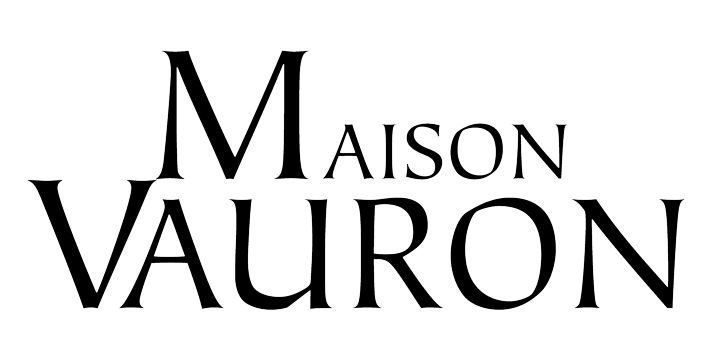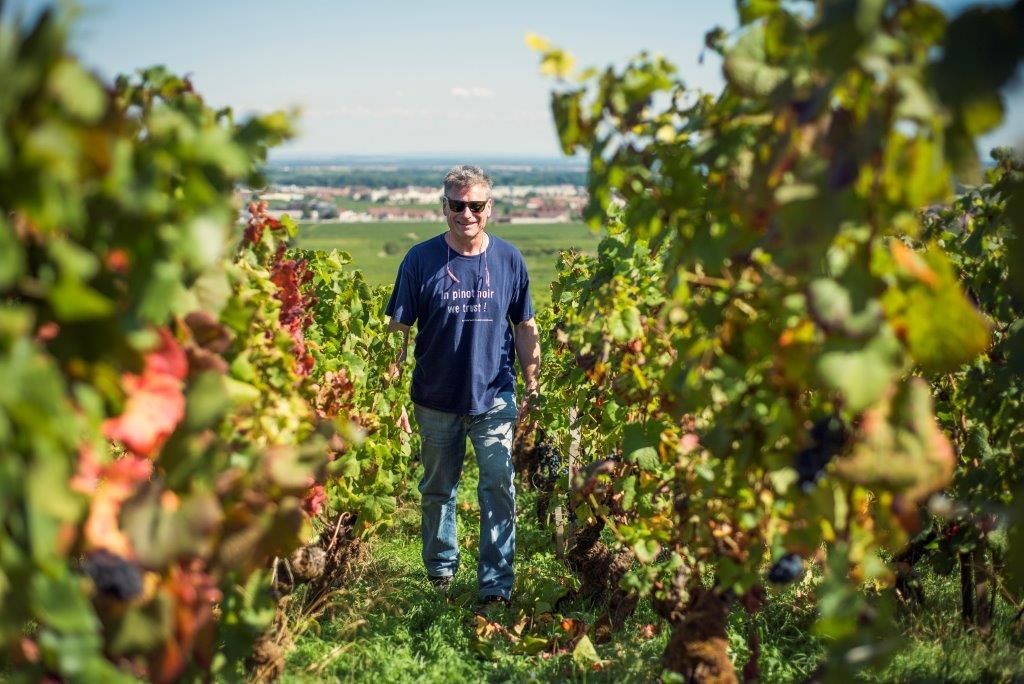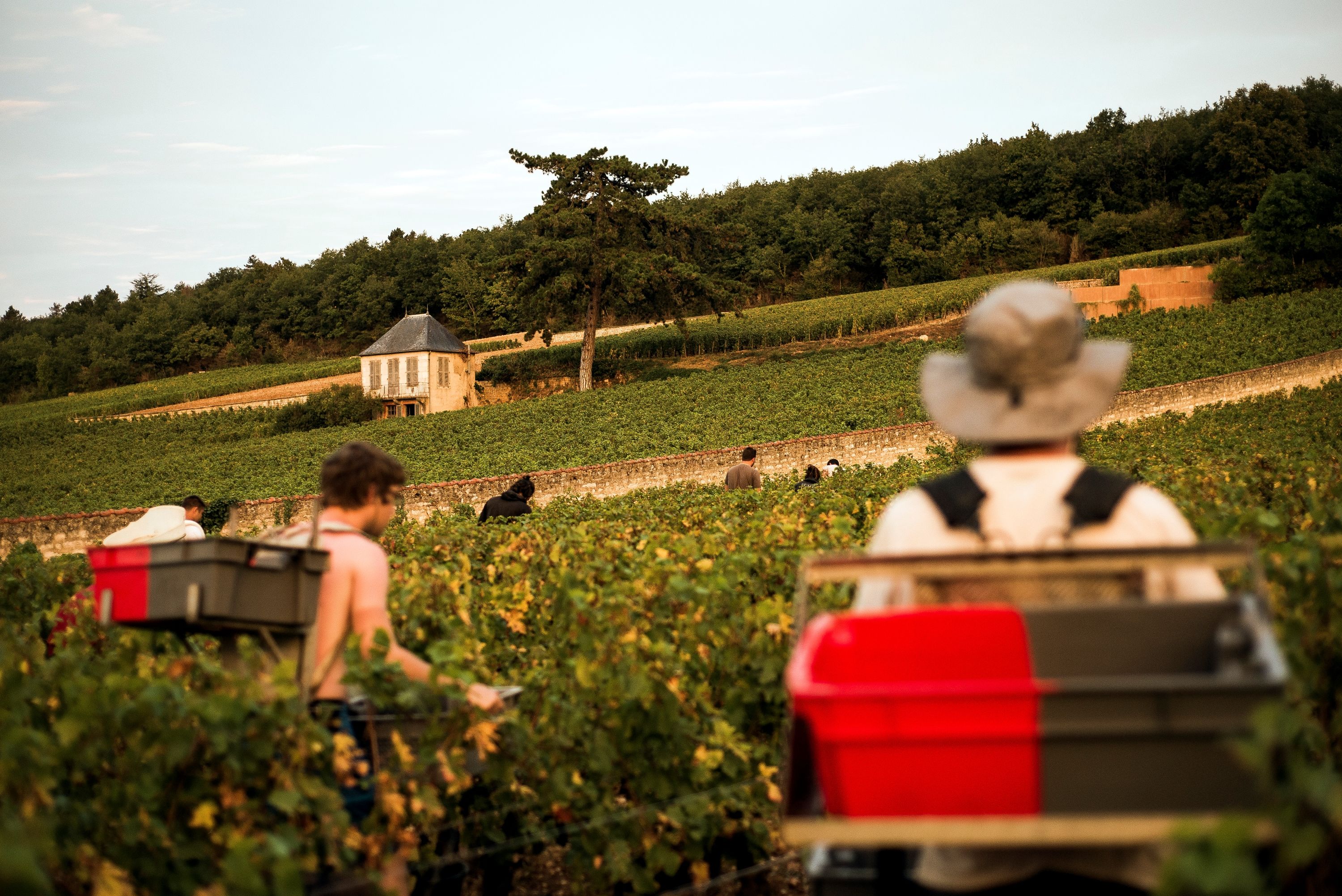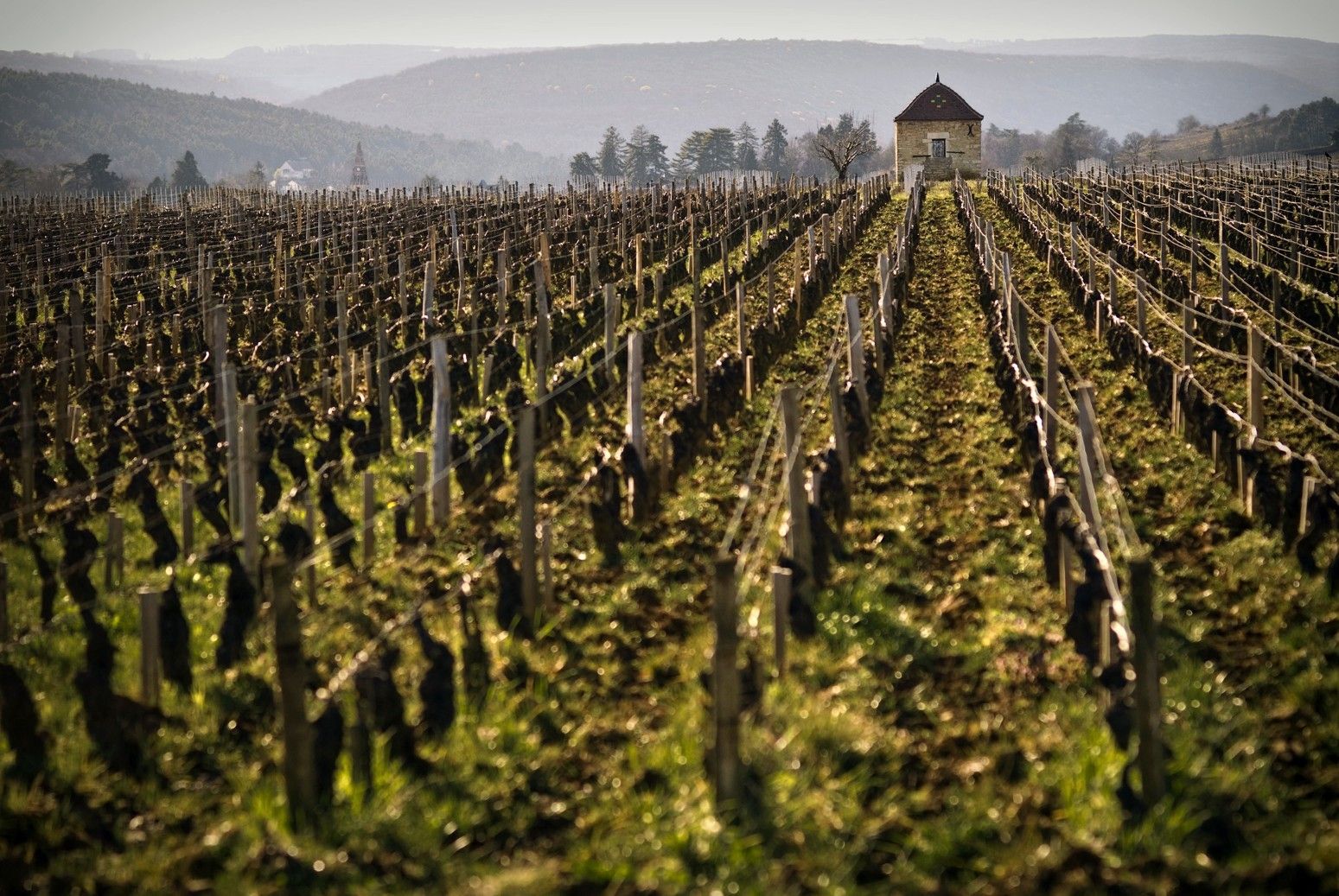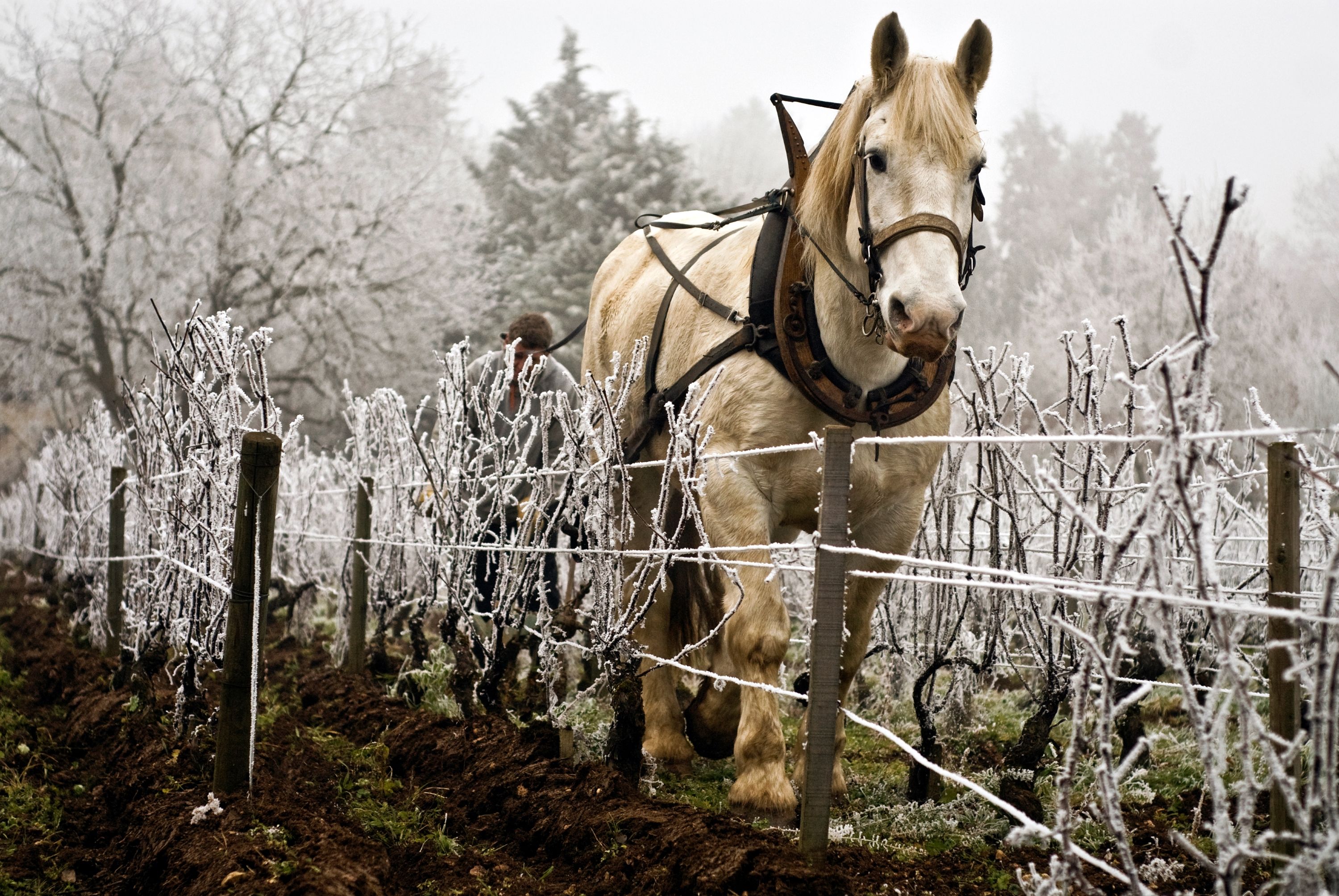Meet Pascal Marchand
What sparked your passion for winemaking?
Growing up, wine held significant importance in my family. It was always present on our table, which was rather unusual for North America at the time. Around the age of 18, my friends and I started hosting wine tastings and delving into books on the subject. This passion led me, along with four others, to participate in a harvest exchange program in Burgundy in 1983. It was an unforgettable experience. Determined to learn more, we made our way to Château de Chorey-les-Beaune, where François Germain, the owner and winemaker, hired us despite having a full team already. He saw our passion and knowledge and entrusted us with responsibilities in the winery. This marked the beginning of my journey in winemaking. I returned to Burgundy in the summer of 1984 to work and enrolled in the wine school in Beaune, becoming the first foreigner from overseas to attend.
What motivated your decision to settle in France, specifically Burgundy?
There was a cellar in the house where I grew up which was not common at all fiftyish years ago in Canada and North America in general, mostly supplied with French wines, some Italians and very little Spanish. From all the stories I could hear around the table when my dad and his friends were talking about the wines, it was Burgundy that captured me the most.
Also, Quebec and French Canada being a strong roman catholic culture and my mother’s side of my family being devoted I could ear a lot about the Cistercians monks and the Benedictines monks, two Burgundian congregations that played a huge role in the history of Europe and middle east during Middle Ages. When I discovered that it was these same monks who discovered the Terroirs and develop them to what we have today, it intrigued me even most.
Besides renowned Grand Crus, do you have a particular wine in your collection that holds special significance for you?
Of course, I have Pommard 1er cru Clos des Epeneaux from Comte Armand in my cellar and some Vougeot 1er cru Clos Blanc de Vougeot from Vougeraie. Two Monopoles that are not Grands Crus but are very special for their personality and the fact I was involved making them and building their reputation. But that is an easy answer.
I am very proud to have a quite eclectic cellar with gems from almost every wine region in the old and new world. For example, from New Zealand I have some wines from Bell Hill, Rippon, Felton Road, and many others.
For some reasons I am also very fan of Mourvèdre in general.
How far do you go in embracing biodynamics in your winemaking practices?
I discovered biodynamic viticulture in 1988, looking for ways out of the only conventional viticulture system I had been taught at the time at the Beaune wine school in 1984-1985.
I can honestly say that this is what enabled me to continue in the profession.
Being more of a city boy myself, biodynamic viticulture enabled me to integrate a number of notions and subtleties that someone from a wine-growing background might naturally have. The ability to observe nature, to understand and feel the rhythms of nature. The days, the months, the moons, the seasons, the sun, the different lunar rhythms, the 4 elements (water, fire, earth, air), .... which have influenced farmers for centuries.
I was one of the pioneers in Burgundy to introduce biodynamic practices to a wine estate.
However, I've always seen biodynamics as a personal approach rather than a dogma imposed by Rudolph Steiner through 4 lectures to Swiss farmers at the beginning of the 20th century. For me, these 4 lectures were more a basis for reflection on which to build, leaving everyone with the tools to develop their own practice.
When you do more in-depth research into anthroposophy in general and Rudolph Steiner's vision, you realise that biodynamics stems from a very esoteric theory based on a vision of the world that existed before the advent of scientific knowledge.
Even though I think it can be very interesting to take an interest in it, and try to understand how our ancestors saw the world, I think it can all be a bit out of date.
However, I'm the first to admit that this esotericism enabled Rudolph Steiner to propose certain biodynamic preparations, for example, the 500 based on cow dung enclosed in horn, and the 501 based on silica, which definitely have a marked effect on the soil in the case of the former and on the plant in the case of the latter.
I have to admit, though, that since the years of more marked global warming we've tended to use them less.
Apart from winemaking, what are your other interests or passions?
Even as a student, I was an adventurer. I worked in the merchant marine, sailing along the St. Laurent Seaway and the Beaufort Sea in the Arctic Ocean. Initially aspiring to be a writer and poet, I explored French and Canadian literature before immersing myself in French culture and language in France.
I've always had a passion for poetry. I'm also very interested in geo-politics, culture in general and travelling, whether within my own country, a few kilometres away in Burgundy, France, Europe or further afield.
Could you recommend a traditional Burgundian dish that pairs exceptionally well with your wines?
The advantage of having as wide a range of Burgundy wines as we do means that certain dishes go better with certain appellations. For example:
- Savigny les Beaune 1er cru Les Vergelesses pairs well with Burgundy snails.
- Côte de Nuits wines complement eggs in pinot noir sauce.
- Beaune 1er cru Teurons is excellent with Coq au vin.
Is there a local restaurant you particularly enjoy and would recommend to our clients?
I highly recommend La Rôtisserie de Chambertin for its starred table d'hôte or its bistro, Lucien.
Discover Pascal Marchand's wines here.
